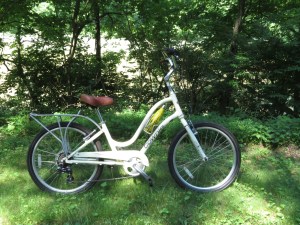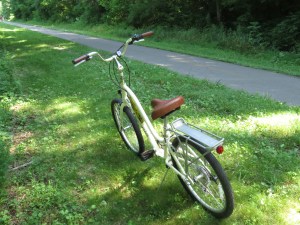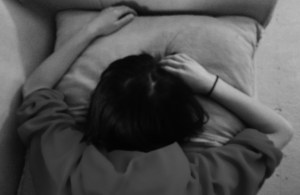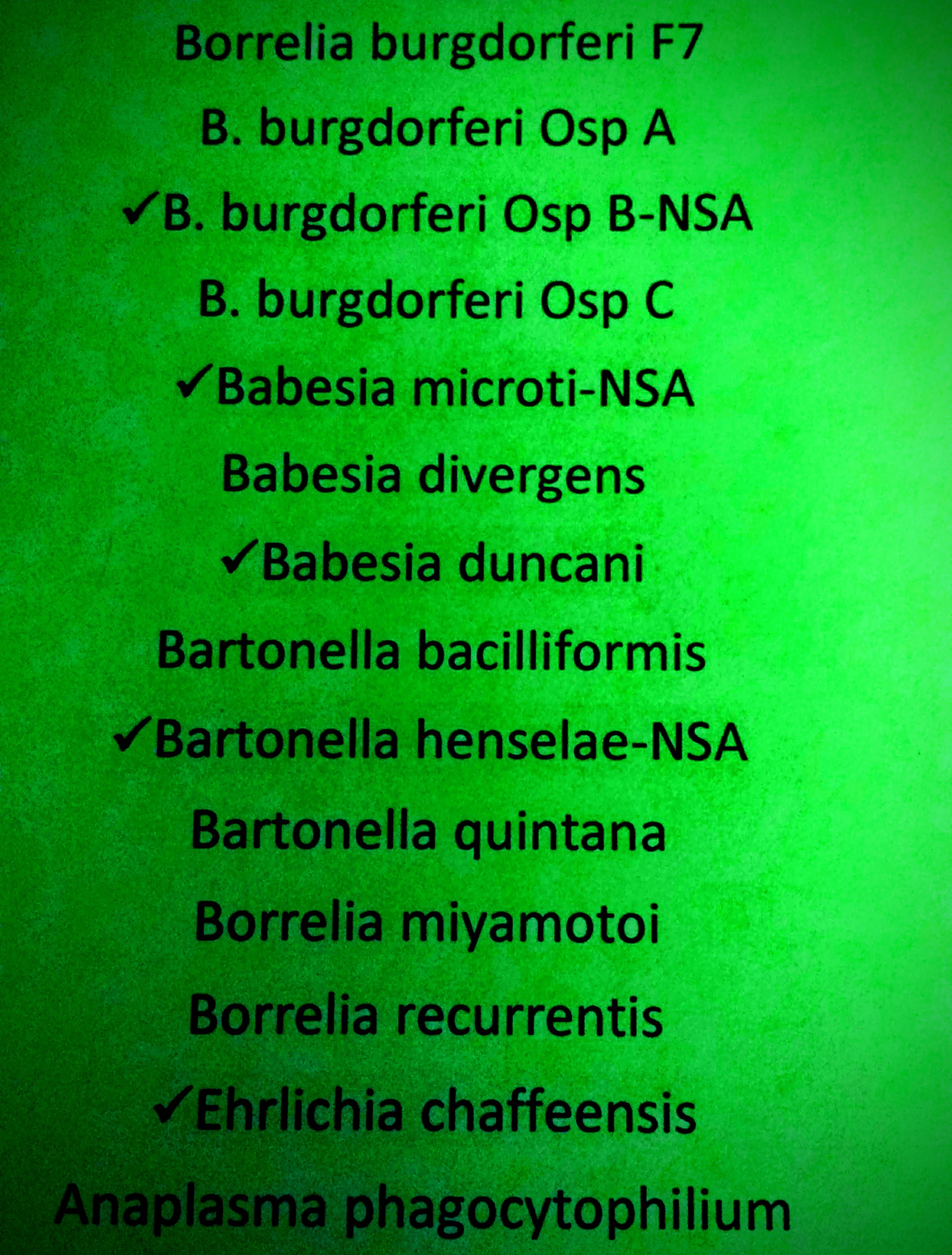When a Trusted Physician Closes the Door

For those with “invisible” illness, it’s difficult to find someone who believes you’re sick – not just depressed, not just anxious, not just tired – but sick.
These nonbelievers can be siblings, best friends, spouses, children, or acquaintances, but the ones who leave us most helpless are the doctors. Physicians who dismiss our illnesses make us vulnerable to exacerbation of symptoms and sometimes irreparable harm.
Maybe you know what I mean.
You were never sick; always strong, productive, hopeful. Now here you sit in one more exam room. How many has it been? How many white-coats have pressed a stethoscope to your chest, shone a light into your ears, nodded and wrinkled a brow in response to your long, long list of complaints? How many times have you sensed an internal eye roll? How many times have you witnessed one?
But then it happens. You find the doctor who really looks at you. Who nods, not merely to seem attentive, but to acknowledge that she gets it; understands what you’re saying; how you feel.
That happened for me nearly five years ago.
Lyme disease can take its time before finally making a stand. Mine was like that. Symptoms came and went for years. I didn’t have the experience of seeing a long line of physicians, but I should have. I was just too hard-headed to go. As a nurse, I worked with doctors and didn’t wish to be at their mercy any more than I already was. So, I dealt with it.
Okay, I ignored it. I did my level best, anyway. I ignored the joint pain, the panic attacks, the sleeplessness, the flu-like feeling. The soles of my feet were like raw ground meat, so I bought shoes with more cushion and sat down more often. My brain, eyes, and ears didn’t like light or noise, so I wore earplugs and stopped going to movies and malls. I ignored it all until I couldn’t. In my defense, it’s tough to ignore two weeks of vomiting, chills, fever, and diarrhea.
At the time, an intestinal parasite-harboring bagged lettuce was in the news. I told my doctor that was likely my problem. Accepting my diagnosis, he prescribed the antibiotic I requested and seemed happy to spend no more than five minutes with me, order a single lab test, assure me he was impressed I’d managed to stay slim, and remind me to get up-to-date on all my “woman stuff.” Which I did.
Following that intestinal inconvenience, I began to decline until pretending became too much. My mind was going. I couldn’t remember the way home from work, how to get there, or why I was even in my car. I started trying to open doors with my cell phone, turn my dryer on with the light switch. My ears were ringing, my head hurt, the right side of my face was sliding downward. My rib cage burned; my muscles twitched, ached, and jerked. I could barely walk. Everything either hurt, malfunctioned, or both.
But it may have been the fatigue that finally pushed me over the edge. Maybe it was the day I fell asleep in a patient’s home while interviewing her. Or, maybe it was the second time that happened. I’m stubborn and that’s not a symptom of my disease.
Luckily for me, the iron pill prescribed for my nine-point-something hemoglobin made me sick. That tiny, forest-green tablet bullied me into action and through the right door.
My new doctor’s practice had a name – not just doctor so-and-so. I won’t give the name here. I’ll just call it True Health. It was in an old brick building, in a tiny town I’d been to, maybe once in my life, but I had a patient visit there, and afterward saw the sign. I thought it was a health food store and decided to look them up, hoping they’d have an iron supplement I could endure. Turns out they did – and a whole lot more.
I’d never heard of functional medicine. Entrenched in the industry we misguidedly call “healthcare,” “ill-care” was what I actually did for a living – managed peoples’ illnesses; tried with pills and pills to keep symptoms at bay. It’s all I knew. But since functioning had become a problem, I thought I’d give this new approach a try.
Seeing a functional medicine practitioner is something else. Before your first visit, you complete a two-hour questionnaire – much of it consisting of inquiries into your bowel habits. The idea that my first visit was to last an hour and a half was jaw-dropping, but it was the first fifteen minutes that left me stunned. Turned out he was an expert in the disease, I didn’t know I had. When he said, “I think you have Lyme disease.” All I could do was repeat, “Lyme disease?”
Then he handed me another questionnaire – this one, Lyme-specific.
I passed with a very high score. Like most healthcare providers, I knew nothing of Lyme. I’d hobbled across the street and into his office that day, burdened by thoughts of Lupus, Multiple Sclerosis, Alzheimer’s – these were among the possible diagnosis I expected to hear. When I didn’t, I thought I’d gotten off easy. But, as I said, I didn’t know anything about Lyme.
I recall bits and pieces of that day, but his words, as he left the examination room, imprinted on my mind. I have held on to them for all these years, through unspeakably difficult days. His hand on the knob, he turned back and said, “You know, a lot of people want to make you feel crazy for what you’re going through, but we don’t want that for you. We just want you to get better.”
That hope, expressed by someone who had the ability to help me realize it, pulled me out from under the fear. Until that day, I hadn’t told anyone how I was feeling head-to-toe. I’d tossed out phrases like,
“I’m so tired,” or, “I feel achy,” always shaking my head, baffled by my body’s failings. But how could I begin to list the thousand and one complaints in casual conversation? Even I thought I was losing it. Even I wondered if I just wanted attention or to get out of work. Maybe I didn’t want to hear the assurances that these things happened to women of a certain age or to women because they are, well, women.
There were many reasons I kept it to myself, but when he said that, I felt something break open; sorrow and relief rushed in together. I found confusion and clarity, peace and uncertainty. I was a jumble of emotions, but it was the comfort and compassion, the understanding and assurance – all the things a sick person needs, things I hadn’t yet admitted to needing – I found those things in abundance at that place, enough to deal with what lie ahead.
That place will soon be gone. My doctor’s practice closes the end of the year.

The word I’ve heard most from his other patients has been “devastating,” I concur. It is a blow, a punch in the gut. The day I found out, I sensed a snap, the cord from life raft to ship had been cut. Adrift, unsure, alone, we all panicked; found ourselves floating in a fog with multiple, but untested, paths on all sides.
What’s the big deal? Find another doctor people said; recommendations filled my message boxes and social media feeds. But those of us with Lyme know some things most don’t. Someone with an accepted, well-researched condition might think finding a great doctor isn’t too complicated, but Lyme is, in a way, illegal. Our doctors are few and far between because the risk of giving us as many antibiotics as someone with — say acne — is high. Lyme doctors can be shut down by a complaint from an insurance company or the health department for “over-treating.” They have lost their licenses because of us.
So, we all scrambled. We googled; talked back and forth. “Have you heard of so-and-so in such-and-such town? His he any good? Does she take insurance? Does he treat with antibiotics, herbals, or both? How much is the first visit? My friend saw that doctor. He was horrible – she almost died! Ugh, that’s three hours from me. Bleh, that’s a six-hour drive. First visit is how much?! Yikes!” On and on it went, all of us forced to begin again or give up.
My doctor was a safety net. I had settled in and expected to stay until I was well. When his doors close, I must start over. He won’t be the only one out of practice. It’s been a long time since I’ve had to tell this tale from the beginning; since I’ve had to complete a new patient form or use my GPS to find my healthcare provider.
It’s been four and a half years since I’ve had to feel nervous; uncertain about whether the person sitting across from me had my best in mind. I don’t want to wring my hands and avoid eye contact while I call out my myriad of physical aches and pains, my neurological disturbances. I dread sitting alone in a foreign and sterile room, unable to concentrate on the book in my lap, instead staring at soap dispensers, tissue boxes, sinks, and paper-covered exam tables — anything to look casual and relaxed, to not be caught wide-eyeing the door when my new practitioner walks in. Like a weathered sea captain taking sailing lessons or Jack Niklaus signing up for golf camp at the local YMCA, I don’t want to be a new patient because I am an old, experienced one.
New patient visits cost a lot of money. You have to pay the hefty first-visit price, adopted now, by most Lyme-literate MD’s. Some of them, at rates between five hundred to a thousand dollars, or more. Since there is no established treatment protocol for Lyme, your new doctor will try things — supplements, herbals, compounded capsules, untested intravenous therapies. All of these things will be costly, none will be covered; your doctor will not accept insurance. You’ll pray no one else in your family needs medical care.
A new physician will, and should, run tests. Such a multitude of complaints warrants a broad array of diagnostic procedures. If your previous results are not recent, or this doctor prefers a different lab or method, you’ll be subjected to many needle sticks and scans of things. You may be referred to specialists until every week of every month you are committed to a doctor’s appointment. You’ll find ways to make it bearable – treat yourself — a grown-up version of the proverbial post-doctor lollipop. When I see my primary care, I’ll swing by a favorite upscale thrift store; when I see my neurologist, I’ll get a smoothie, my thyroid doctor, a gluten-free, grain-free, sugar-free, dairy-free lunch that I’ll eat beside a nearby lake.
If you choose a doctor not trained in Lyme disease, you’ll save cash but have a lot of explaining to do. As you relay your symptoms, your new doctor may become alarmed. He may wonder why you haven’t already been to a rheumatologist, neurologist, endocrinologist, allergist, sleep specialist, physical therapist, and on and on. She may be puzzled by your cavalier demeanor, the way you shrug when describing the sudden numbness to the right side of your body, or your occasional loss of vision in one eye. He may attribute your neck stiffness to poor sleep posture instead of a coinfection like Babesia or Bartonella. Same for your night sweats, those will be, most likely, if you’re a woman, due to womanhood. She will not have been taught to consider infectious disease as the root cause. You may have to bring documentation – peer reviewed studies that demonstrate the true nature of Lyme, that explain it as a collection of infections, not just one; the way it persists in the body, an ongoing, active contagion lying in wait. You’d better bring this paper work wrapped in humility and pray he is willing to learn from you.
This process, being sick, has worn away some of my stubbornness. I am giving in, making a list of those after-doctor treats. I know I was spoiled to have stumbled upon the right doctor that day; to have had one provider who understood he couldn’t send me to specialists who didn’t believe in the thing that was making me sick. I was blessed, on my second attempt, to find the help and wisdom I needed to get better. I know that what’s ahead for me is what many with my condition have tolerated their whole lives, and so, I find myself again, breaking open on the inside; once more a jumble of feelings. Hope will show up, but right now grief wins the day. I am succumbing to a path in life I did not and would not have chosen.
We all know the comfort of familiarity, of coming home after a hard day’s work, a funeral, a long trip. We see our favorite chair, our pillow; tune in to the sounds – the ones we don’t always notice because they’re always there, a refrigerator’s hum, a clock’s tick, a dog’s soft snores. A doctor’s office can be a place like that when you’re sick for a long time. After a hard month of pain, memory loss, shortness of breath, exhaustion, a familiar caregiver can be a welcome sight, can release a contented sigh borne of trust. It can be a place where you anticipate, with relief, the opening of an exam room door; where you know you’ll leave encouraged.
Once you know a doctor is listening; that he hears you and cares, you let yourself believe he wants what you want, to see you walking tall and strong, hiking the old trails, pumping the pedals of your bike. And so, you tell him your story. You start at the beginning and each visit you speak to him the middle, all that’s happening in your right-now. You’ve no doubt he will be with you at the end, bringing this affliction to a resolution of wellness.
But his role has ended. He has stepped out of your story, and you’ve no choice but to bring in a replacement; to put on the brakes, slip into reverse, and start over.
We’ve all heard people say it, that they put their lives in the hands of a doctor. I did. Not consciously, but in that room for the first time, I lay down the weight of all I used to be and now was not, could not; all I wished to be and do again. And he had willingly picked it up; lifted my burden. In that place, I had a safe room where someone wanted me to tell what hurt; where I would be validated, find healing — a place I could express my fear that I would forever be unable.
As his practice ends, mine starts over. I’m not sure if this will be the commencement of a whole new marathon, or just a long, steep incline in the middle of the same endless route. But I’m breaking out my equipment: My long list of medications and symptoms, treatments that worked and the ones that failed. I don’t feel ready, but I’ll narrate, once more, the longest story of my life and hope that my new doctor will really, truly just want me to get better.
Lyme feels like this.

(This article was first published here: https://theunchargeables.com/when-a-trusted-physician-closes-the-door/)


















 I stare forward at a sea of jade, but in my mind I see clustered spikes of Lavender. I remember purple Oregano, deep green Spearmint, variegated Pineapple Mint; Coneflowers in yellow and purple, and creamy Yarrow mingled with lanky, wispy Tarragon.
I stare forward at a sea of jade, but in my mind I see clustered spikes of Lavender. I remember purple Oregano, deep green Spearmint, variegated Pineapple Mint; Coneflowers in yellow and purple, and creamy Yarrow mingled with lanky, wispy Tarragon.

 I didn’t want to sleep. Life was waking up, and I wanted to join in, but it was beyond me to stay awake. I tried to hang on by listening hard to the Wrens’ trills, the Towhee’s insistent ‘drink-your-tea’, the buzz of the Red-Winged Blackbird. But I kept letting go; falling into those odd dreams under the frenetic control of the bacteria in my brain.
I didn’t want to sleep. Life was waking up, and I wanted to join in, but it was beyond me to stay awake. I tried to hang on by listening hard to the Wrens’ trills, the Towhee’s insistent ‘drink-your-tea’, the buzz of the Red-Winged Blackbird. But I kept letting go; falling into those odd dreams under the frenetic control of the bacteria in my brain.